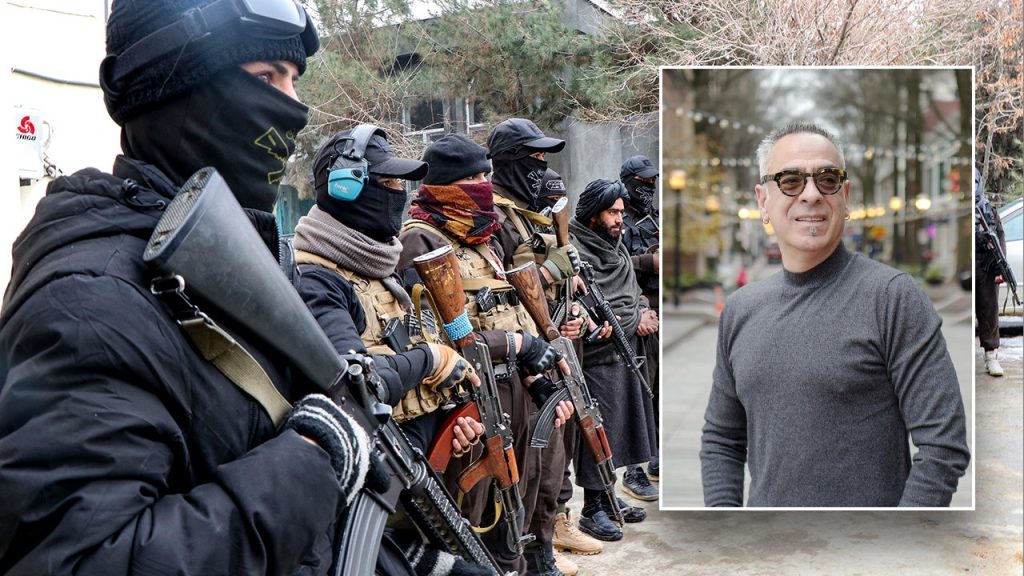In a significant diplomatic breakthrough, the Taliban has released American hostage George Glezmann, who had been held captive in Afghanistan for over two years. His release was made possible through negotiations involving the Trump administration and Qatari officials. Glezmann, who was abducted while visiting the country as a tourist on December 5, 2022, is now on his way to be reunited with his family.
| Article Subheadings |
|---|
| 1) Background of the Hostage Situation |
| 2) The Diplomatic Negotiations |
| 3) Reaction from U.S. Officials |
| 4) Broader Implications of the Release |
| 5) Future Relations with the Taliban |
Background of the Hostage Situation
The situation involving George Glezmann began on December 5, 2022, during a visit to Kabul, where he was taken captive by the Taliban’s intelligence services. Glezmann, a 65-year-old American citizen, was in Afghanistan as a tourist when he was seized, marking a significant and unfortunate occurrence in the context of international relations and security. Hostage situations have long troubled diplomatic interactions with the Taliban, especially following their takeover of Afghanistan in 2021. The environment has become precarious for foreigners, leading to heightened security concerns and increasing incidents of abductions.
Previously, Qatar had maintained diplomatic relations with Afghanistan, acting as an intermediary between the Taliban and Western nations. This connection may have played a vital role in Glezmann’s eventual release, as it speaks to the complex web of alliances and negotiations faced by nations dealing with non-state actors.
The Diplomatic Negotiations
The successful negotiation for Glezmann’s release appears to have involved discussions between U.S. officials and Qatari diplomats, reflecting Qatar’s status as a key player in facilitating dialogue between the U.S. and the Taliban. According to sources familiar with the negotiations, the release was described as a “goodwill gesture” undertaken by the Taliban, suggesting that they may be looking to foster better ties with Qatar and, by extension, the United States.
Information surrounding the negotiations was closely guarded, and the specifics of how these talks unfolded remain unclear. Nonetheless, the culmination of these discussions was the release of Glezmann, who directly left Kabul airport and was en route to Doha to reunite with U.S. officials.
Reaction from U.S. Officials
Following the announcement of Glezmann’s release, U.S. Secretary of State Marco Rubio expressed his relief and joy, stating, “
George Glezmann is free. George was wrongfully detained in Afghanistan for two and a half years, but now he’s on his way to be reunited with his wife Aleksandra. Welcome home, George!
” This statement highlighted the emotional weight of the release, not just for Glezmann but for his family and friends, who have endured uncertainty and anxiety throughout his captivity.
The reaction was largely positive among U.S. officials who viewed Glezmann’s release as a vindication of diplomatic efforts and as a victory for humanitarian concern, suggesting that U.S. intervention can lead to successful outcomes even in the face of complex geopolitical challenges.
Broader Implications of the Release
The implications of Glezmann’s release extend beyond individual relief. It signifies potential shifts in U.S.-Taliban dynamics, especially as the Biden administration navigates foreign policy decisions in an ever-changing landscape. Glezmann’s release is also seen as a further confirmation of Qatar’s strategic role in mediating U.S. interests in the region.
Historically, releases of hostages have been contentious, often tied to negotiations surrounding the Taliban’s demands or concessions on the part of the U.S. In this instance, the release appears to bypass some of the previous contentious dynamics, possibly indicating a new chapter in negotiations centered on diplomatic engagement and humanitarian missions.
Future Relations with the Taliban
While Glezmann’s release is undoubtedly a hopeful event, it raises questions about the future of U.S.-Taliban relations. The Biden administration has yet to establish official diplomatic ties with the Taliban, and the dynamics of hostage negotiations reflect larger geopolitical interests. Despite Glezmann’s release, another American, Mahmood Habibi, remains in captivity, casting a shadow over the progress that might be established through negotiations.
As the situation develops, it remains to be seen whether talks will lead to an easing of diplomatic tension or whether the Taliban’s actions will continue to complicate future interactions. The international community watches closely, considering the broader ramifications that Glezmann’s release may hold for peace and stability in Afghanistan and beyond.
| No. | Key Points |
|---|---|
| 1 | George Glezmann was released after being held hostage since December 5, 2022. |
| 2 | Negotiations involved officials from the Trump administration and the Qatari government. |
| 3 | The release was characterized as a “goodwill gesture” from the Taliban towards Qatar. |
| 4 | U.S. Secretary of State Marco Rubio praised the outcome, emphasizing Glezmann’s wrongful detention. |
| 5 | The situation presents implications for future diplomatic relations between the U.S. and the Taliban. |
Summary
The release of George Glezmann marks a notable moment in U.S.-Taliban relations and showcases the complexity of diplomatic negotiations in securing the freedom of hostages. As the international community reflects on this development, the focus will likely shift towards how it may influence future interactions and negotiations not only related to hostage situations but also broader U.S. foreign policy objectives in Afghanistan and the region.
Frequently Asked Questions
Question: What are the circumstances surrounding George Glezmann’s abduction?
George Glezmann was abducted on December 5, 2022, while visiting Kabul as a tourist, leading to his prolonged captivity under the Taliban.
Question: Who facilitated the negotiations for Glezmann’s release?
Negotiations for Glezmann’s release were facilitated through Qatari officials who acted as intermediaries between the Taliban and U.S. diplomats.
Question: What implications does Glezmann’s release hold for U.S.-Taliban relations?
Glezmann’s release may signal potential changes in diplomatic engagement strategies between the U.S. and the Taliban, although complexities remain due to other hostages and ongoing geopolitical tensions.
